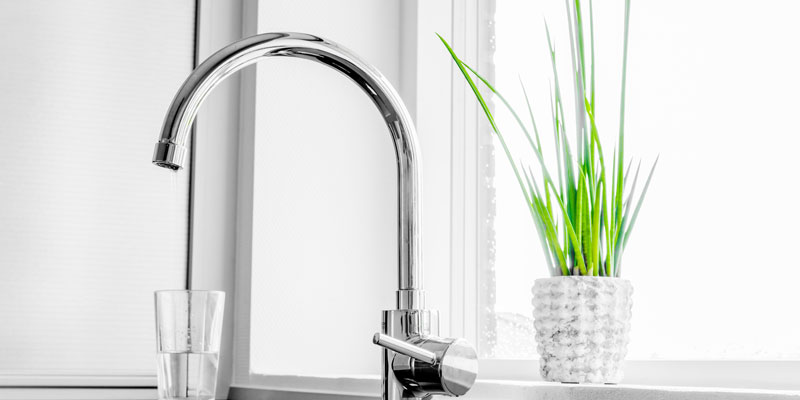The winter season potentially puts a strain on the plumbing system in your home. Plumbing problems might go unnoticed sometimes during winter due to the snow but become obvious when temperatures rise. For all homeowners around Winston-Salem, NC, it is important to prepare your plumbing for the season to avoid repairing costs down the line. Sudden breakdowns on your system can be damaging and very inconvenient. Water usage increases as the weather become warmer, so your plumbing system needs to be perfect. Advanced preparation will also help you detect problems early so that the plumbers can fix your system before the issues become a bigger problem than they need to be.
Check your sump pump condition
Your sump pump may be inactive for days or weeks during the freezing weather. During the spring, the sump pump will be more active, thus testing and ensuring it is still functional. The melting snow could compromise the capability of your system to operate properly. Primarily, sump pumps are installed to prevent groundwater or floods from accumulating and damaging your home. Also, it eliminates condensed moisture and surface runoff in area-way drains and, in the process, defends basement floors from damage.
To be sure that the system is working properly, you need to perform a test. Find the connecting pipes and remove any leaves or debris. Pour a gallon of water into the sump pit and check if the switch turns on. If it does, then water should be pumped efficiently. After the water drains, the switch should turn off independently. Homeowners should clean the pump four or five times a year. A mixture of vinegar should solve any mold issues in your system. If you encounter any problems, call a plumber immediately to come and fix the problem.
Inspect your water heater
During the winter, homeowners turn up the water temperature due to the freezing weather. Putting more stress than necessary on the water heater wears it out faster than in moderate conditions. The overload reduces its efficiency to warm water. We recommend moderate temperatures for the warmer season. Nothing above 120 degrees Fahrenheit on maximum. Otherwise, you will be overloading and lowering its mechanical capabilities. For maintenance, remove sediments from your unit and replace old water heaters that are vulnerable to breakages.
Test the faucets
Low temperatures during winter make the pipes contract. The onset of spring translates to high temperatures and the pipes start to expand again. This process can damage the pipes leading to leakages. When you open the fixtures, high or low water pressure will help you determine if a problem needs fixing. It might take a little time for the air to be eliminated from the pipes before water comes out. For efficiency, use both hot and cold options when evaluating the condition of the system. If the water pressure remains slow after you adjust, it means there is a water leakage or blockage somewhere in your system. These problems are hidden, and you will need a plumber to check and determine if your faucets need repair or replacement.
Inspect your toilet and basement pipes
Bathrooms are prime suspects when checking for leakages. A water leakage in the toilet can be easily detected when there is unusual dampness around the bathroom. Add food coloring to the tank and wait 15 minutes before checking the bowl of the toilet. If you see food coloring in the bowl, you know there is a leak.
Basements commonly have water damages due to their location in the home. Water leakages are hardly noticed from the basement until the extent is severe. Check out all the open pipes and ensure there are no broken pipes. We suggest that you install a flood alarm in vulnerable areas as a preventive measure.
Clear you drainage
All plumbing is not tied to pipes and the system appliances. Your drainage can also be a hindrance to the proper functioning of the system. It is best to keep your yard clean for water to flow smoothly in rainy weather. Clear storm drains and downspouts, remove any debris that could potentially block the drainage.
How to detect common problems easily
- Low drainage on the pipes
- Low pressure from the taps
- Robust growth of vegetation in a certain area or damp surfaces
- Discolored water that may be smelly
- Growth of mold or brown spots on the ceilings
- Consistently clogged sinks, tubs, and toilets
- Hiked water bills
- No water supply
- Constant dripping
Water is essential for the survival and smooth running of a home as we rely on water to complete many activities around our home. Water is safe when enclosed in a septic tank, a pipe, a tub, in a sink, among many appliances. If it is not confined, then it becomes a nightmare. Water can damage our home structure and the contents under the structure and is in some cases a danger to human life. With the above knowledge, every homeowner should stay alert to the plumbing system’s condition to manage all the system issues.
To all homeowners in Winston-Salem, we request you to engage a plumber who will help you evaluate your plumbing system’s condition and determine the care it needs. If you encounter any problems, Bodenheimer Plumbing is just a phone call away, ready to solve all your plumbing concerns. We have served the Triad for over 80 years, and our professionals are known for our efficiency in serving and fast response to emergency issues.


